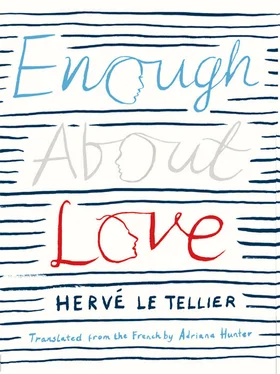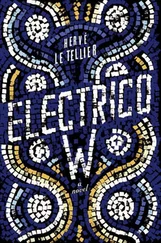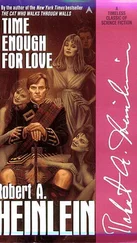“You also like me because I’m Jewish.” Yves is about to think this is a ridiculous comment, but she adds: “You would have liked to be Jewish.”
It is a statement of fact.
“Do you mean I regret not being Jewish?” he asks, amazed.
“I do. There’s this regret. You’ve built yourself around it.” Yves does not answer. She takes her idea further: “Being Jewish is an identity. If you could have chosen one, that’s the one you would have chosen.”
Anna genuinely thinks everyone would like to be Jewish, certainly all writers. Jews all have to do with knowledge and books and handing down memories. A Jew, she says, works hard, wants to pass something on to his children, to leave something for the world. Protestants do too, she concedes, sometimes. But Yves remembers a comment Anna’s sister, Nora, made when Anna introduced her to her friend Hugues Léger’s work. Nora thought one of his books was magnificent, so perceptive that she could not help a: “Are you sure he’s not Jewish?”
It took Anna staring at her in amazement for Nora to start blushing, equally embarrassed to discover her spontaneous assumptions as she was for revealing her prejudices. Yves had nodded, floored, more than a little annoyed.
He wanted to lash out at her: “No, Nora, Hugues Léger wasn’t Jewish. Being Jewish isn’t a prerequisite for writing a great book. And it’s not enough of a qualification either. Would you like me to name some bad Jewish writers?”
But Yves spared Anna’s sister. He settled for an ironic smirk, dressing it up in great magnanimity.
And yet Anna never says anything by chance. It is true: Yves would be a good candidate to qualify as a Jew. He is not a philo-Semite, the sort of anti-Semite who loves Jews, but he is interested in Jewishness. He knows a lot about Judaism, its rites and festivals, he listens to klezmer music. Because he speaks German, he understands Yiddish, but who speaks that anymore? He sent Anna a text message for Rosh Hashanah: A gut yor . Even though her father was born in Hanover, Anna did not know it meant “Happy New Year.” Yves may have become a Trotskyite and a militant, but that was out of visceral antifascism and loathing for the slaughter of the Holocaust, a subject on which he has an impressive collection of books. It is also true that a lot of his friends are Jewish, that he has a particular fondness for Jewish jokes, his favorite being the one about the “alternative.” 5Lastly, he is very aware that he has fallen in love with more Jewish women than statistics could have predicted.
“Okay, you’re never going to be Jewish Writer of the Year,” a (Jewish) friend once told him, “but why don’t you go for the Goy Novel Prize?”
For all that, does Yves regret not being Jewish? Saying no would start Anna analyzing his reaction as a denial. Yves wants to find a suitable answer to this question he has never asked himself. He is probably an indeterminate cocktail of Gaul, Viking, and Goth, but he has never hated the insecurity of having no clear provenance, like a wine’s appellation contrôlée , never wanted to wear another man’s shoes. He has built himself around a refusal to belong, a rejection of family. He likes the fact that his mother tongue sometimes feels foreign to him. He would like to give Anna a precise answer. As soon as the conversation turns to Jews, or worse, to Palestine and its “territories” (a word she does not always qualify with “occupied”), to “terrorism,” he is always on thin ice. The subject is so close to Anna’s heart that she sometimes loses all sense of judgment. She once let slip a “You French people,” which riled Yves, particularly as she would have left him for a “You Jews.”
Yves takes the leap: “To be absolutely honest, Anna, I’m glad I’m not Jewish. If I’d been born Jewish, I might have settled for that. That whole illusion of being something is so intoxicating. I could have been one of those kids in a yarmulke demonstrating with a PROUD TO BE JEWISH sign. Do you really think you can feel proud just for being born Jewish? That’s just as stupid as saying you’re proud for being French.”
“No. It’s not the same. Jewish culture is five thousand years old.”
“Hey, that’s enough fictionalizing, Anna. Two thousand eight hundred at the outside. And being a Jew today isn’t like it was under Ptolemy or Caesar.”
“Those kids don’t have to hide, they don’t have anything to be ashamed of.”
“That’s not the point. Everyone, whether or not they’re Jewish, can be proud of Jewish culture. Everyone has a right — a duty, even — to be, just as they should be proud of everything the human mind has achieved. When I walk through the Alhambra, I’m very proud of Muslim culture.”
“Really? I didn’t know you were such an ecumenical slob with regard to religions.”
She is right. Yves loathes religious figures, Jewish ones as much as any other. In churches, Prévert used to say, there is always something that does not ring true. But he is happy to acknowledge the universal qualities of Judaism. When he read his piece about foreignness, he omitted an idea he wanted to keep for another text. It was that in Hebrew, becoming a Jew was called leitgayer , which means “become ger ,” become a foreigner, because the Jews were foreigners in the kingdom of Egypt. So the temptation to become something else is inseparable from Jewish culture. Anna would most likely retort that he was philosophizing, that leitgayer simply meant becoming a guest, a guest of the Jews. But ger is less ambiguous in biblical Hebrew, he had talked to a rabbi about it: it means “foreigner,” period. Nothing sacred can be achieved without being aware of this rootlessness. The tribe of Levi had no right to own land for that very reason: a priest is a living emblem of people who are never completely at home.
Yves’s mischievous side could almost say that, in order to conceive the world properly, you have to conceive it as a Jew would, as someone from nowhere and who owns nothing would. But he is pretty sure he has already said that to Anna, and he would rather not repeat himself.
“Look, Anna, I’m just saying that being under the illusion of being Jewish because your mother is, doesn’t really mean being Jewish anymore. Being born Jewish is nothing. You can’t cut corners to become one.”
“More sophistry. Sophistry that conveniently forgets about the pogroms, the persecutions, the Shoah.”
“I’m not forgetting anything, Anna. But saying Einstein and Freud were Jewish geniuses means thinking the same way as the Nazis.”
Yves is getting carried away, so he can tell that Anna has touched a nerve, that actually, yes, if he really did have to choose some mythical connection, then maybe. But there would be other possible options. Anna shrugs her shoulders, she does not want a fight.
“But it’s true, Freud and Einstein were Jews. Look, I’m bored of this, it’s beside the point. You haven’t answered my question.”
Yves says nothing, amazed at his own clarity. In the past, when a situation was too tense, his mind fogged over, bombarded with parasitic images. At fifteen, he would lose the thread of his thoughts during family arguments because he would suddenly have an absurd mental picture of a Galápagos turtle laying an egg. He would lose the ability to argue his point, even when he knew he was right. It took him some time to realize that this stupid habit was a symptom, that it derived from his inability to face up to things completely.
“Anna, I’m going to give you one last reason why I’m glad not to be. If I were Jewish, I’m not sure our relationship could have happened.”
Anna says nothing in reply. She remembers that, during one of her sessions when she mentioned that Yves was a goy, Le Gall asked: “Could you have fallen in love with a Jew?”
Читать дальше












